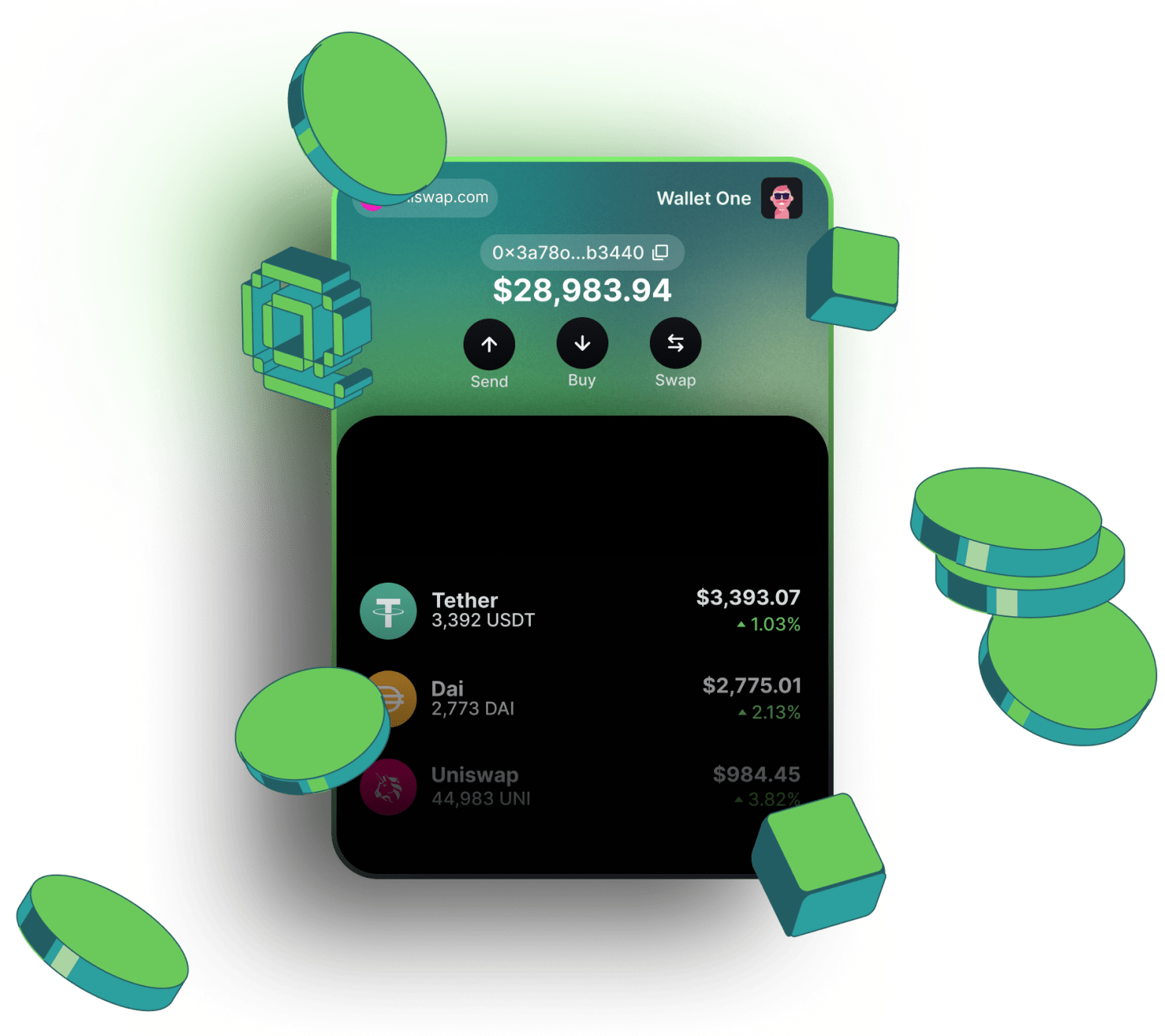Wigwam is the best  Taiko blockchain crypto wallet
Taiko blockchain crypto wallet

Why choose the Wigwam crypto app?
Work with Taiko Testnets and Mainet
Buy Taiko tokens, including native token, by using a credit card
Swap Taiko-based tokens directly in the wallet
Possibility to connect the wallet to all Taiko blockchain dAps: DeFi, DAO, Gamings, etc
How to get a Taiko address in Wigwam web wallet
Create a wallet in Wigwam
Choose a Taiko network from the dropdown menu
Copy you Taiko address
Taiko blockchain review
Taiko, an Ethereum layer-2 scaling solution that is the next big thing in the crypto space, emerged as the technology aiming to overcome the growing scalability problems of Ethereum. With an emphasis on decentralization, security, and scalability, Taiko can position itself to become a crucial part of the Ethereum ecosystem.
History and origin
Taiko was founded by Daniel Wang in March 2022. His core belief in this project was to break the hold of centralized platforms and successfully resist censorship. Wang figured out a niche in the development of a decentralized infrastructure layer for a social app with the result of creating Taiko on the Ethereum scalability challenges but utilizing the decentralized concept.
Key Milestones
Funding and Investment: Taiko has raised $37 million over three funding rounds and closed the Series A round of $15 million. This financing is used for the launch of Taiko's main network and the creation of the decentralized social network.
Technological Innovation: Taiko's "based sequencing" architecture simplifies the Layer-2 value chain, offering a decentralized alternative to centralized sequencers.
Community and Decentralization: Taiko is a community-oriented platform that has a common goal of decentralization comparable to Ethereum. It uses a double corporate framework for community building and decentralization.
Testnet and Mainnet Launch: The "Katla" test network, launched in January, is a vital stage between the testnet and the mainnet launch. It gained 1.1 million wallet addresses and more than 13 million total transactions.
Technical Overview
Consensus algorithm
Taiko resolves scalability, decentralization, and speed using its ZK-Rollup technology. Through cryptographic proofs for transaction authentication, Taiko improves transaction processing speed and minimizes transaction fees. Thanks to the ZK-Rollup architecture, Taiko can scale efficiently, while keeping all Layer 2 transfers in check through minimalistic data storage and simplifying the validity of blocks and data transfers to Layer 1. This design assures the fact that Taiko can accommodate a large number of users and transactions without affecting the scalability of the system.
Solving scalability, decentralization, and speed
Taiko addresses scalability, decentralization, and speed through its ZK-Rollup technology. By employing cryptographic proofs to validate transactions, Taiko enhances transaction processing speed and reduces fees. The ZK-Rollup architecture allows Taiko to scale effectively by preserving the status of all Layer 2 transfers using minimal data, simplifying the validation of blocks and data transfer to Layer 1. This design ensures that Taiko can support a growing number of users and transactions without compromising on scalability 2.
Main Players in Taiko
The main players in Taiko include:
Proposers: They aggregate transactions on Layer 2 adding another layer of security and send the block proposal to Layer 1. Taiko allows anyone to do it. This increases decentralization.
Provers: The Validators then produce the ZK-SNARK proofs validating the Proposers' Layer 2 transaction and block, which they will present after. As a result, this function is also available to every network member.
Node Runners: They carry out transactions from the on-chain data (from Layer 1) to transmit the state of the chain. While Byzantine Fault Tolerant (BFT) consensus only allows both the proposers and the provers to run their nodes, Taiko nodes are open to anyone.
DeFi Ecosystem on Taiko
Taiko gives an easy multi-chain add-on for app developers and app users. It doesn't demand any changes using their apps to operate on Ethereum Layer 1. This compatibility is seen to ease the migration of existing smart contracts, dApps, and development tooling including infrastructure that will then be scalable and secure for the Ethereum community that uses them.
Tokenomics and Gas Usage on Taiko
As concerns gas cost, Taiko aims to keep gas costs low, with each block costing about 30k in gas. Such design aims to reduce the costs of gas by allocating the slots for blocks in a circle and thereby making the slots reusable. Also, this is part of Taiko's wider approach to keep Ethereum compatibility and simultaneously reduce the undersize and the centralization.
Conclusion
Taiko, launched by Daniel Wang, is rock-solid Layer-2 scaling solution for Ethereum as it strongly supports decentralization, security, and scalability. Its main objective is enabling Ethereum to fit into the scaling framework through the innovative "based sequencing" architecture and ZK-Rollup technology and so becoming a crucial part of the ecosystem. Notwithstanding the capital funding and the strong community, Taiko is responsible for the future of the decentralized applications that run on the Ethereum network, as it provides a scalable and resilient future to the decentralized system.





